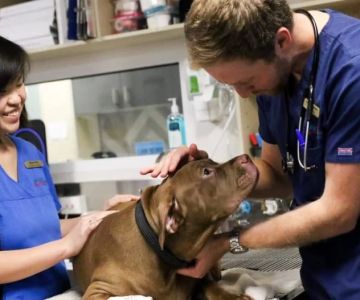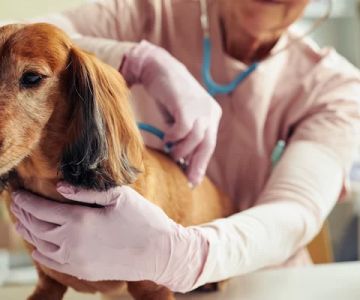- 1-Overview-of-Veterinary-Services-Taxation
- 2-Factors-Determining-Taxability-of-Vet-Services
- 3-Regional-and-National-Variations-in-Tax-Laws
- 4-Common-Exemptions-and-Taxable-Items
- 5-Impact-on-Pet-Owners-and-Veterinary-Clinics
- 6-Real-Life-Case-Study-Tax-Application-in-Veterinary-Services
- 7-Consulting-Experts-and-Using-Resources
1. Overview of Veterinary Services Taxation
Understanding whether veterinary services are taxable is essential for both pet owners and veterinary clinics. Veterinary services often include medical treatments, surgeries, preventive care, and sales of pet medications or supplies, which may be subject to different tax rules depending on jurisdiction.
This complexity requires careful examination of tax regulations to determine when and how taxes apply to veterinary services.
2. Factors Determining Taxability of Vet Services
Several factors influence whether veterinary services are taxable, including the nature of the service, local tax laws, and the classification of products sold. Services classified as medical treatments may be exempt from sales tax in some areas, whereas sales of tangible goods like pet food or accessories are often taxable.
Additionally, some jurisdictions differentiate between professional services and retail sales, affecting the application of taxes.

2039 Carter Hill Rd, Montgomery, AL 36106, USA
See Details3. Regional and National Variations in Tax Laws
Tax laws governing veterinary services vary widely across regions and countries. For example, certain U.S. states exempt veterinary medical services from sales tax, while others impose taxes on specific items or services. Understanding the local tax codes is crucial for compliance and accurate billing.
These differences mean veterinary clinics must stay informed and adapt to changing tax requirements.
4. Common Exemptions and Taxable Items
Common exemptions often include diagnostic tests, surgeries, vaccinations, and other medical services performed on pets. Conversely, items like flea treatments, nutritional supplements, and grooming products may be taxable.
Some states also provide exemptions for certain types of animals or pet owners, adding further nuance to tax application.
5. Impact on Pet Owners and Veterinary Clinics
For pet owners, understanding the taxability of veterinary services helps anticipate the total cost of care. Veterinary clinics must correctly apply taxes to comply with law, avoid penalties, and maintain transparent billing practices.
Accurate tax handling enhances client trust and streamlines clinic operations.
6. Real-Life Case Study: Tax Application in Veterinary Services
At a veterinary clinic in California, staff noticed confusion among clients regarding charges on pet medications. Upon review, the clinic clarified that while medical consultations were exempt from sales tax, medications and supplies were taxable. Transparent communication and updated billing software helped improve client satisfaction and regulatory compliance.
This case highlights the importance of understanding and implementing veterinary service taxation rules.
7. Consulting Experts and Using Resources
Given the complexity of tax laws, veterinary clinics and pet owners benefit from consulting tax professionals or legal advisors familiar with veterinary service taxation. Additionally, resources such as state tax departments and professional veterinary associations provide guidance and updates.
Being proactive in understanding whether veterinary services are taxable helps ensure smooth financial transactions and supports the ongoing care of pets.
For assistance with billing, tax compliance, or finding the right veterinary care products, consider trusted platforms like Hidden Brook Veterinary, where expert advice and quality services come together to meet your needs.










